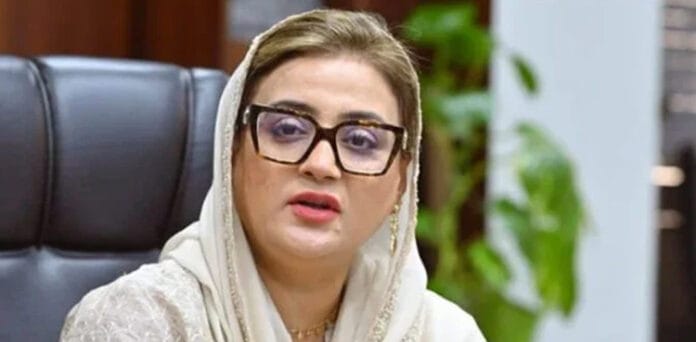Cultural Identity and Media Reform: Azma Bokhari at the Forefront
Azma Bokhari’s appointment as the Minister for Information and Culture in the Punjab government has proven to be a sagacious decision. Her transformative initiatives in the vital domains of culture and information have not only gained public appreciation but also demonstrated keen political foresight. In a culturally rich and densely populated province like Punjab, ensuring transparent communication and preserving cultural heritage is no minor challenge. Yet, Azma Bokhari not only accepted this challenge but turned it into an opportunity under her dynamic leadership.
Revolutionary Reforms in the Information Sector,
Azma Bokhari’s foremost focus was revamping the information sector through a well-devised strategy. She activated the Digital Media Cell to ensure timely dissemination of official information and to counter misinformation and propaganda swiftly. One of her key achievements includes the revival of the Media Workers Welfare Fund, from which dozens of deserving journalists have already benefited — a significant step in supporting the media fraternity.
Cultural Revival with a Fresh Spirit,
Under Bokhari’s leadership, Punjab’s cultural narrative has been given a renewed identity. The organization of “Punjab Cultural Festivals” in cities such as Lahore, Multan, Bahawalpur, and Rawalpindi was a serious effort to promote regional music, folk dances, and traditional crafts. She also reenergized the Alhamra Arts Council, providing a vibrant platform for young artists to express and evolve. Events like classical music evenings, theatre festivals, and folk storytelling sessions have become central attractions under her patronage.
PTI Founder Avoiding Polygraph Test for Third Time, Says Azma Bokhari
Opportunities for Women and Youth,
Bokhari’s ministry gave special attention to female artists and young writers. Initiatives like the “Women’s Cultural Carnival” and “Young Writers Awards” opened new avenues for hidden talent from the grassroots level. Through these efforts, she made it clear that culture is not just a legacy of the past but also a vital tool in shaping the present and future.
A Narrative Against Extremism,
Azma Bokhari also utilized culture as a vehicle for promoting tolerance, harmony, and moderation. Her ministry’s initiatives included Sufi Music Nights and interfaith cultural dialogues, playing a vital role in laying the foundation for a peaceful and inclusive society.
Conclusion: A Cohesive and Dignified Identity,
Azma Bokhari’s vision is clear: a Punjab where access to information is free yet responsible, and where culture becomes a means of social cohesion. Her tireless work and strategic vision have transformed the Ministry of Information and Culture from a conventional bureaucratic department into a vibrant and effective institution.
Indeed, Azma Bokhari has demonstrated that with clear intentions, a broad vision, and strong execution, it is possible to carve new milestones in any field.

By: Asif Iqbal





Comments are closed, but trackbacks and pingbacks are open.